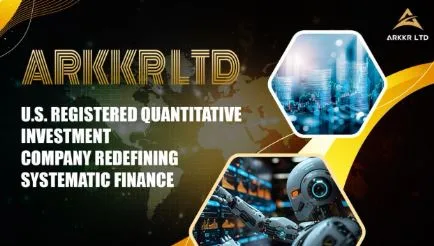What Really Matters When Choosing a Marketing Agency Partner
Every growth-stage leader eventually reaches the same inflection point: the in-house marketing team can only stretch so far. Budgets increase, pressure mounts, and the complexity of campaigns begins to outpace the people and systems in place. At that point, most executives start looking outward—for a marketing agency partner who can bring fresh ideas, executional muscle, and the kind of specialized expertise that’s hard to build internally overnight.
On paper, this seems straightforward. There’s no shortage of agencies promising to drive leads, build brands, or transform customer engagement. But in practice, choosing the right partner is one of the trickiest and most consequential decisions you’ll make. Pick the wrong agency, and you could waste not only dollars but also months of critical runway. Pick the right one, and you’ll have a partner who accelerates your growth, strengthens your team, and helps you seize opportunities before competitors do.
I’ve seen both outcomes play out. I’ve seen companies dazzled by flashy creative work, only to realize later that the agency couldn’t adapt to their fast-changing priorities. I’ve seen leaders buy into promises of “guaranteed” leads, then discover the results weren’t sustainable or aligned with their business model. And I’ve seen the opposite: partnerships where the agency became a true extension of the internal team, guiding strategy, owning execution, and driving measurable impact quarter after quarter.
So, what actually matters when choosing a marketing agency partner? After years of watching these dynamics unfold, I’ve found that the decision comes down to a handful of critical factors—some obvious, some less so.
The Non-Negotiables in an Agency Partner
When you strip away the buzzwords and sales decks, there are five areas that consistently separate strong partnerships from the disappointing ones.
Stage Fit
Not all agencies are built for the same types of companies. A global agency that thrives on massive campaigns for Fortune 500 brands might be a terrible fit for a Series C company fighting to carve out market share. Conversely, an agile boutique that excels in scrappy test-and-learn tactics may not have the infrastructure to support a later-stage organization rolling out multi-market campaigns.
The best agency for you is the one that understands your current stage of growth and has the tools to support where you’re headed. Ask about their client mix. Look at case studies. Do they have a track record with companies like yours, not just in industry, but in size, maturity, and ambition?
Flexibility
Growth isn’t linear. One quarter you might need aggressive demand generation; the next, you may pivot to brand building or customer retention. Rigid scopes and narrowly defined deliverables often leave executives frustrated when priorities shift.
Agencies that thrive with growth-stage companies tend to be flexible by design. They bring depth in a few core areas, but also have the range to adapt their work as your business evolves. Think of it less like hiring a specialist for one project, and more like finding a long-term teammate who can roll with the punches.
This is where an integrated marketing firm often shines. Because they bring multiple disciplines under one roof—creative, media, strategy, analytics—they can pivot with you as priorities change. Instead of stitching together half a dozen niche vendors, you get one partner with the ability to orchestrate campaigns holistically.
Cultural Alignment
This is the factor most leaders underestimate until it’s too late. An agency might have the right skills, but if their working style clashes with your team, the relationship will fray quickly.
Do you need a partner who thrives in ambiguity, or one who enforces structure? Do you want them deeply embedded in your team’s daily workflow, or operating more independently? Fast-growing companies tend to value speed, collaboration, and shared accountability—so agencies that are slow, rigid, or siloed often struggle in this environment.
Transparency
One of the biggest frustrations executives share with me is the “black box” problem. The agency delivers reports, but no one’s quite sure what’s behind the numbers—or worse, whether the dollars are truly being spent in the company’s best interest.
Transparency should be non-negotiable. The right partner will show you how decisions are made, where the money is going, and how results tie back to your larger business goals. They’ll be candid about what’s working and what’s not. That level of openness not only builds trust, it also allows your internal team to learn and grow alongside the agency.
Trust and Chemistry
At the end of the day, the best agency partnerships feel like true collaborations. You don’t want a vendor you have to constantly manage; you want a partner you can trust to carry weight on their own.
This comes down to chemistry. Do you respect their judgment? Do they listen as much as they talk? Would you feel confident putting them in front of your board or investors? The answers to those questions matter more than any single case study or credential.
The Cost of Getting It Wrong
The consequences of ignoring these factors aren’t theoretical. I’ve seen leaders learn the hard way.
One company I worked with hired a large, established agency on the basis of reputation alone. The agency had impressive clients and a slick pitch deck, but little experience with companies at their size and speed. Within six months, the partnership had soured. Campaigns were over-engineered, timelines dragged, and the internal team was drowning in unnecessary process. It took nearly a year—and a painful amount of budget—before they reset with a smaller, nimbler agency that was better suited to their reality.
Another company chose an agency that promised to “own” their entire marketing funnel, from lead generation to nurture. The numbers looked great in the early months—lots of leads, impressive-looking dashboards. But the internal team eventually realized those leads weren’t converting. The agency had optimized for volume, not quality, and by the time the truth surfaced, momentum (and internal trust in marketing) had been badly damaged.
These aren’t outliers. They’re common stories. And they underline why the decision deserves far more scrutiny than a quick RFP or a few rounds of portfolio reviews.
What Success Looks Like
On the flip side, when the factors align, the results can be transformative.
I’ve seen agencies act as force multipliers, allowing small marketing teams to punch above their weight. I’ve watched partnerships where the agency didn’t just execute, but helped shape the company’s positioning, refine its go-to-market motion, and even influence product strategy.
The common denominator in those successes wasn’t the agency’s size or reputation—it was the alignment of stage, flexibility, culture, transparency, and trust. Leaders didn’t just hire a vendor; they built a partnership.
How to Approach the Search
If you’re beginning the process of finding a marketing agency, keep these practical steps in mind:
- Start with clarity. Be clear on your company’s stage, goals, and constraints. Agencies can’t be the right fit if you can’t articulate what “fit” means for you.
- Go beyond the pitch. Case studies are polished for a reason. Ask to speak directly with current or former clients who are similar to your company.
- Test for flexibility. Ask how they handle shifting priorities. What happens if your focus changes mid-engagement?
- Look for signs of cultural fit. Pay attention during the sales process. Do they listen? Do they seem curious about your business? Or are they pushing a one-size-fits-all solution?
- Trust your instincts. If something feels off in the early conversations, it usually doesn’t get better with time.
The Takeaway
Choosing a marketing agency partner isn’t about finding the “best marketing agency” in some abstract sense. It’s about finding the right partner for your unique stage of growth, one who can flex with your needs, align with your culture, operate transparently, and earn your trust.
When you get it right, you gain more than an external vendor. You gain an ally—one who can carry some of the weight of growth, push your team to think bigger, and help you turn strategy into measurable impact.
For leaders in fast-moving companies, that kind of partnership is worth its weight in gold.




